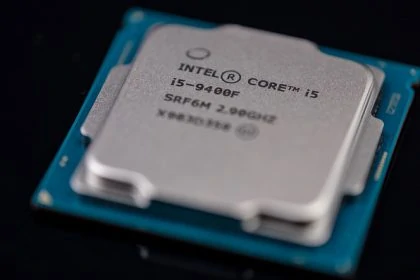In the Intel rebate system case for abusive competition in microprocessors, Intel obtained the partial annulment of the EU Commission’s 2009 decision that had found market leader Intel’s rebate system to be potentially abusive.
 In the years-long legal dispute over a billion-dollar fine against the US chip manufacturer Intel, the EU Commission now has suffered a defeat before the European Court of Justice. The starting point for the contested decision of the EU Commission of 2009 is the economic analysis of the question whether the rebates could have forced an equally efficient competitor as the company in a dominant position out of the market (the so-called “as-efficient-competitor test”, AEC). Such AEC analysis was at the centre of the ruling by the CFI (Case T-286/09 RENV, 26 January 2022).
In the years-long legal dispute over a billion-dollar fine against the US chip manufacturer Intel, the EU Commission now has suffered a defeat before the European Court of Justice. The starting point for the contested decision of the EU Commission of 2009 is the economic analysis of the question whether the rebates could have forced an equally efficient competitor as the company in a dominant position out of the market (the so-called “as-efficient-competitor test”, AEC). Such AEC analysis was at the centre of the ruling by the CFI (Case T-286/09 RENV, 26 January 2022).
Facts: Intel rebate system
Intel Corp. (USA) applied to the European Court in 2009 for the annulment, in whole or in part, of the EU Commission’s decision C(2009) 3726 of 13 May 2009 in Case COMP/C-3/37.990 – Intel. According to this decision the EU Comission found that Intel had strategically foreclosed competitors from the market for x86 central processing units (CPUs) from 2002 to 2007, in particular through price discount agreements for bulk purchases of Intel’s processors.
In its judgment of 12 June 2014, Intel v Commission (T-286/09, “Initial Judgment”, EU:T:2014:547), the CFI dismissed the Intel action in its entirety. However, the highest European court (ECJ) ruled in favour of Intel in September 2017 (C-413/14 P). The ECJ overturned therefore the former CFI judgment from 2014.
In particular, the ECJ criticised the CFI for not sufficiently reviewing the foreclosure effect of the rebate system. The ECJ explained that the examination of the foreclosure effect was also relevant for the assessment of the question whether a rebate system, which in principle falls under the prohibition of Article 102 TFEU, can be objectively justified. In addition, it must always be weighed up whether possible efficiency advantages (also with regard to consumers) compensate for the negative effects under competition law.
However, the CFI had ruled in its judgment in 2014 that it was not necessary to examine whether the Commission had carried out the so-called AEC test in a professional and error-free manner, nor whether the alternative calculations proposed by the applicant had been carried out correctly. The ECJ therefore held that, as a result, the CFI had wrongly disregarded Intel Corp.’s submissions challenging alleged errors by the Commission in the AEC test when considering whether the rebates at issue were capable of restricting competition.
The case was therefore referred back by the ECJ to the lower court CFI; and this court has now come to a decision on 26 January 2022.
Rebate system of the market leader abusive?
On the question of whether the granting of a discount by a company in a dominant position can be described as abusive, according to case law a distinction must be made between three categories of discounts (see : ECJ Michelin I, C-95/04 P):
- Quantity discounts, in general no foreclosure effect prohibited under Art. 82 EC.
- Exclusivity rebates, also known as “fidelity rebates in the sense of Hoffmann-La Roche”; in general inadmissible, abuse in the sense of Art. 102 TFEU
- Fidelity rebates, but not requiring quasi-exclusivity (“third category” rebates); usually examined on a case-by-case basis with the question “is the dominant position strengthened by distortion of competition”
The latter – third category rebates – applies to the present case involving the Intel rebate system for microprocessors.
CFI 2022: decision of 2009 partially annulled
On 26 January 2022, the CFI partially annulled the contested decision of the EU Commission of May 2009 (T-286/09 RENV, EU:T:2022:19).
Indeed, Intel offered rebates or payments to the OEMs concerned (HP, Acer and Lenovo) and that they were required to stop or restrict the marketing of certain products with AMD-based CPUs in return for those payments; AMD was a direct competitor for Intel.
Anyway, the EU Commission’s review of the Intel rebate system was flawed. In its decision, the EU Commission had referred to a very detailed analysis of the AEC test, which, according to the EU Commission, proved the foreclosure effects of the Intel rebate system.
But if the EU Commission obviously based its decision on the AEC tests, the CFI ruled, then it should also have examined Intel’s entire submission on the AEC test applied by the Commission in the contested decision. But it had not done so.
Therefore, the CFI ruled, the EU Commission could not have found that the applicant’s rebates and payments in question were capable of having anti-competitive effects and therefore constituted an infringement of Article 102 TFEU. The reasoning of the contested decision could therefore not serve as a basis for Art. 1(a) to (e) of the decision.
Article 1(a) to (e) and Article 2 of Commission Decision C(2009) 3726 final of 13 May 2009 relating to a proceeding under Article [102 TFEU] and Article [102 TFEU] of the EC Treaty. [102 TFEU] and Article 54 of the EEA Agreement (Case COMP/C-3/37.990 – Intel) were therefore annulled by the CFI on 26 January 2022. And also Art. 3 of decision C(2009) 3726 was annulled by the CFI insofar as it concerns Art. 1(a) to (e) of the decision.
In fact, this ruling is a loss for the EU Commission: With this decision, the court also declared the billion-dollar competition penalty against Intel invalid.
In all other respects, Intel’s claim were dismissed.
Do you need legal representation for IP protection?
Our lawyers have many years of expertise in competition law and in the entire field of intellectual property and are entitled to represent you before any court – in Germany and internationally.
Please do not hesitate to contact us.
Sources:
Case T‑286/09 RENV, EU:T:2022:19, 26.01.2022
Image:
Bru-No | pixabay | CCO License








Leave a Reply